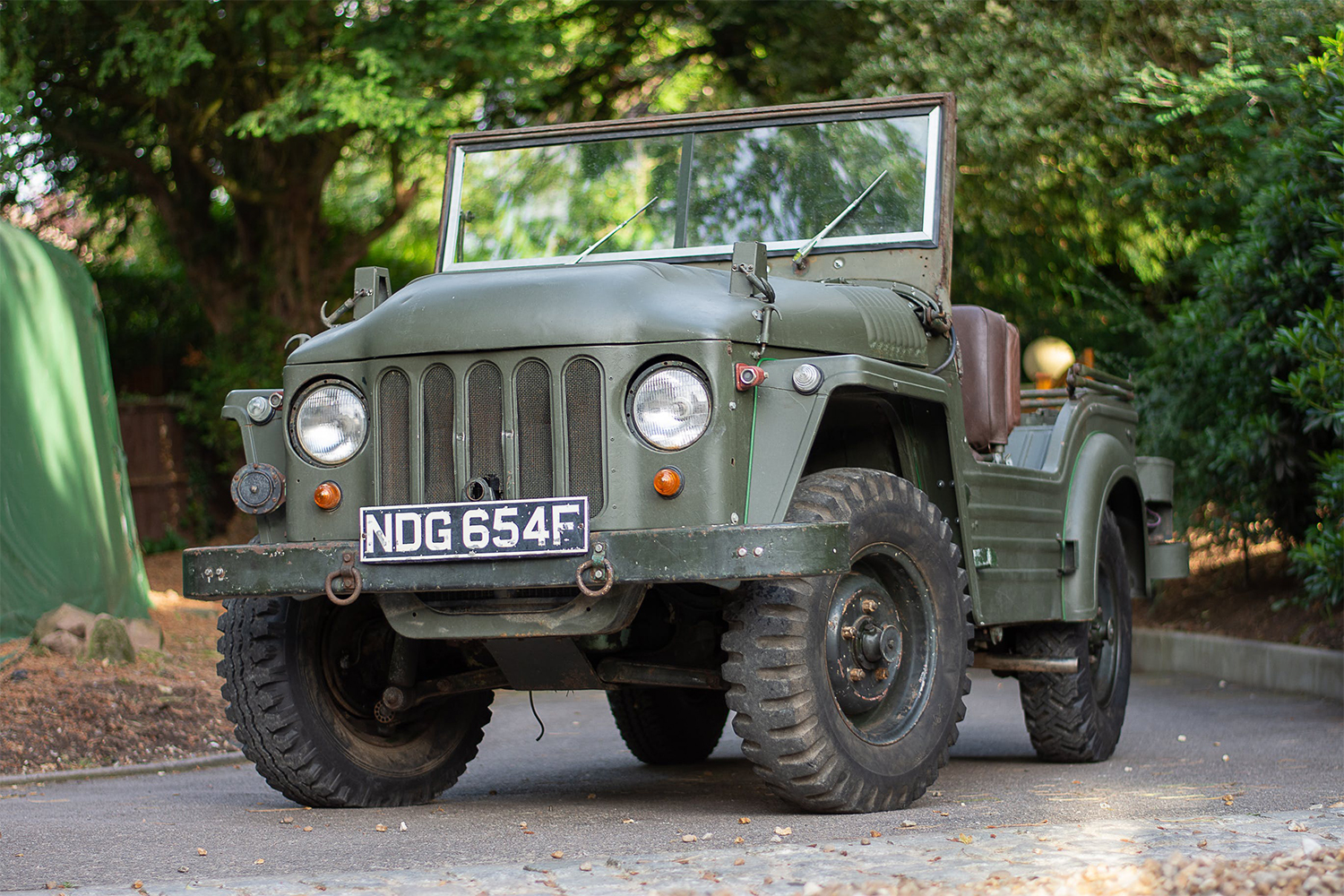When it comes to off-road legends, in America we lay claim to the Jeep, the Bronco, the International Harvester Scout and a number of other four-wheeled brutes. So why is it that we’re still fascinated by the lore of the Brits and their own heritage overlanders?
Probably because they really know how to drive them into the ground, and then tell a good story about it over a pint. There’s the one about the Oxford and Cambridge students driving the Land Rover Series I from London to Singapore. There’s that time British special forces painted their Land Rovers pink for better camouflage in the deserts of Oman. And it’s not all about the precursor to the Defender; there’s the time Jimmy Page and Robert Plant took an Austin Champ up “into the misty mountains” to start writing Led Zeppelin III.
Never heard of the Austin Champ? It’s an essential part of English off-road history, built at the same time the Rover Company was developing the first Land Rover vehicles. The reason you probably missed it in your 4×4 education is because it was usurped by its brother in arms, as well as the vehicle it was inspired by: the American jeeps built for military use during World War II.
During the war, the U.S. supplied four-wheel-drive jeeps (this is long before the Jeep brand emerged) not only to our own troops but to the Allied Nations. But as Ben Branch recently explained at Silodrome, the Brits soon found “they needed to develop their own version using locally sourced materials and parts.”
This led to the creation of the Land Rover Series I as well as the Austin Motor Company’s Champ, full name “Truck 1/4- ton, CT, 4X4, Cargo and FFW, Austin Mk.1,” both of which started production after WWII. Branch dug up the beginnings of the latter as a 1952 model recently hit the auction block at Car & Classic Auctions. The sale has since ended, but the auction house is based out of the U.K. so American buyers likely wouldn’t have bothered; better to simply take the history lesson.
Yes, the Champ looks a lot like the Jeep you know and (maybe) love, what with the similar grille, headlight placement and fold-down windshield. But there are a number of ways Austin differentiated what they hoped would be a more capable machine, including five forward gears and five reverse gears, a Rolls-Royce 2838cc 4-cylinder engine, and waterproofing up the wazoo, which meant a folding snorkel that could be affixed to the right side of the hood and allow the vehicle to travel in up to six feet of water. According to Branch, that feature was later axed “as it was deemed not worth the extra cost.”
In fact, after starting production in 1951, the Austin Champ, a blatant Jeep ripoff, itself was axed in 1956 in favor of the Austin Gipsy, which was a blatant ripoff of the Land Rover. It’s no wonder, then, that Jeep and Land Rover are still going strong today, while the Austin Motor Company has not been heard from in a while (though there are rumors the people who hold the rights may be cooking up something electric).
But hey, over a decade after the Champ went out of production, the blokes from Led Zeppelin were still scooting around in one while in their prime, which just proves you can apply the rose-colored phrase “they don’t make ‘em like they used to” to just about any old-school 4×4, even the failed copycats.
This article was featured in the InsideHook newsletter. Sign up now.
